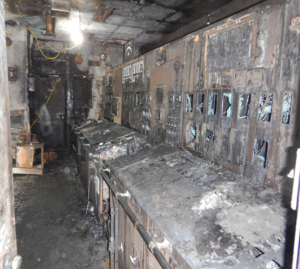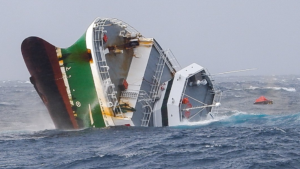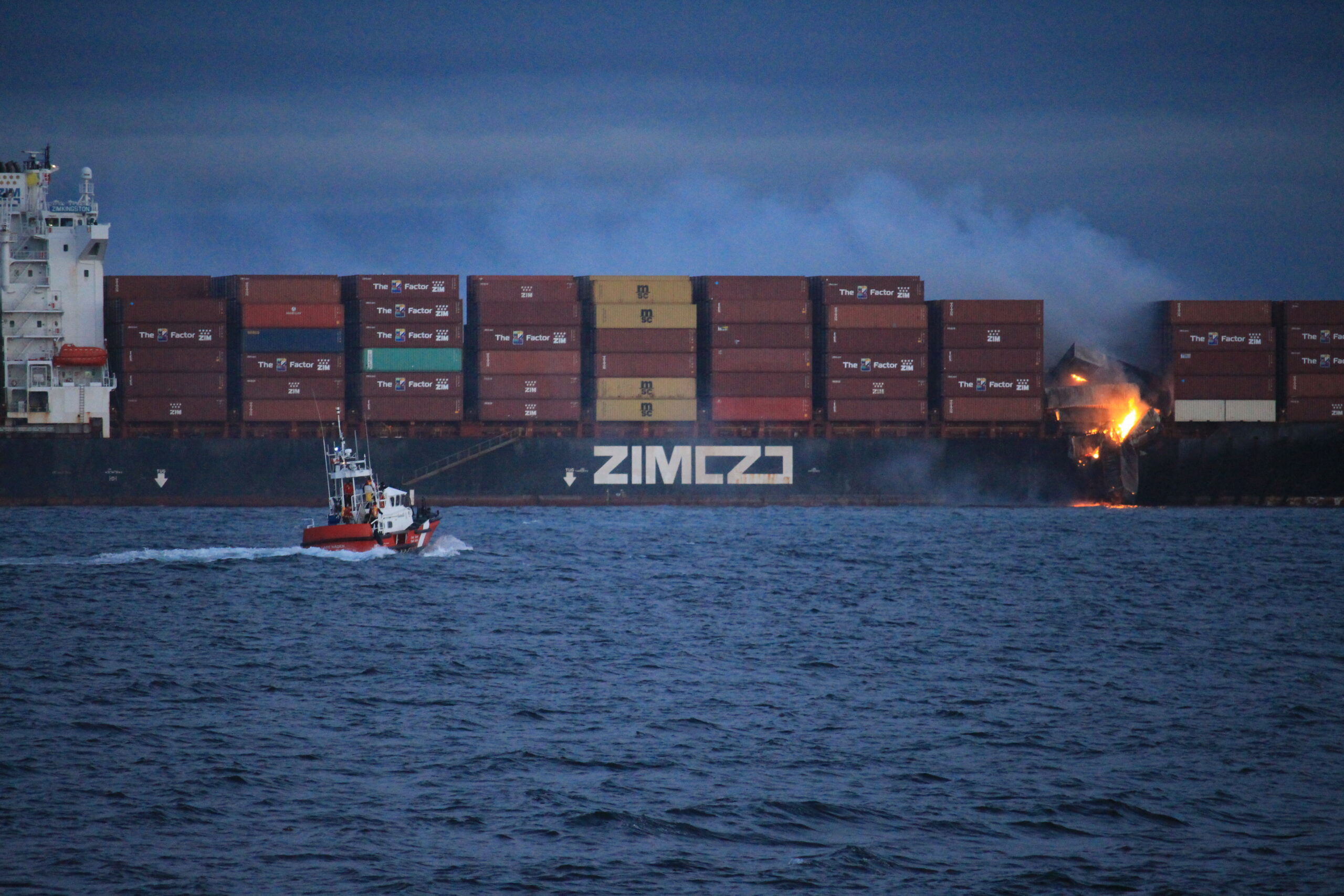By Yoan Marier*

A threat without clear answers
The numbers speak for themselves.
In the past decade, the Transportation Safety Board of Canada (TSB) has received nearly 400 reports of vessel fires, and 10% of those fires resulted in the total loss of the vessel. While fatalities remain rare, the consequences of shipboard fires can be catastrophic.
Vessel fires are one of the most serious types of emergencies at sea. Over its 35-year history, the TSB has issued nine safety concerns, and ten recommendations related to fire safety.
Yet the frequency and severity of recent incidents raise a critical question: why do fires continue to overwhelm trained crews on vessels?
Investigating vessel fire responses
Recent investigations offer some insight. Fires aboard vessels can ignite with little warning and escalate beyond control in a matter of minutes. While each occurrence is unique, they share a common thread—how quickly onboard emergencies can intensify, even with firefighting systems and trained crew.
Engine room fire on the Tecumseh
On December 15, 2019, the bulk carrier Tecumseh experienced an engine room fire while transiting the Detroit River near Windsor, Ontario. The crew activated the vessel’s fixed fire suppression system and dropped both anchors. Although the fire was initially extinguished, it reignited after crew re-entry introduced fresh air into the engine room. The vessel was towed to the Port of Windsor, where the fire was fully extinguished the following day with assistance from a marine salvage team.
The TSB’s investigation into this occurrence (M19C0403) identified insufficient vessel-specific fire training materials and emergency preparedness plans. The report also highlighted that if shore-based fire brigades are expected to support on-board firefighting, they must receive appropriate training and be equipped with the proper gear. Without these, their ability to assist ship crews during fire emergencies is limited.

TSB photo of a fire damage in the engine control room of the Tecumseh – (M19C0403)
Catastrophic failure of machinery, subsequent fire, and sinking of the Atlantic Destiny
On March 2, 2021, the engine on the fishing vessel Atlantic Destiny failed catastrophically when the vessel was south of Yarmouth, Nova Scotia. The shaft generators exploded, causing a fire and damage that led to flooding in the engine room. The vessel sank the following day.
The subsequent investigation (M21A0041) found that although the crew had deployed the engine room’s carbon dioxide (CO₂) fixed fire suppression system, their repeated entries into the sealed space reintroduced oxygen, allowing the fire to reignite. This led the Board to issue a safety concern on insufficient crew knowledge regarding CO₂ fixed fire suppression systems.

Canadian Coast Guard photo of the 143-foot Atlantic Destiny that sank in March 2021 – (M21A0041).
Loss of containers overboard and subsequent fire on the ZIM Kingston
On October 21, 2021, the container vessel ZIM Kingston experienced parametric rolling, resulting in the loss of 109 containers overboard and damage to others. Thirty-six hours later, while the vessel was anchored off Victoria, British Columbia, a fire broke out in a damaged container and spread to five nearby containers. The fire burned for five days before it was declared extinguished.
The subsequent investigation (M21P0297) highlighted Canada’s limited capacity to manage marine emergencies that exceed a vessel crew’s capabilities. Unlike the United States, Canada has no mandatory pre-arranged emergency or salvage plans, and the Canadian Coast Guard does not have marine fire suppression capabilities or a direct role in firefighting. In light of the findings, the Board issued a safety concern on the gaps in Canada’s preparedness for marine emergencies that exceed the response capacity of the vessel’s crew.
Engine room fire on the Holiday Island
On July 22, 2022, a fire broke out in the engine room of the Holiday Island near Wood Islands, Prince Edward Island. All passengers and non-essential crew members were safely evacuated, and a large-scale emergency response followed. Despite efforts by responders, the fire could not be extinguished, and the vessel was abandoned. The vessel continued to burn until the following afternoon and, two days after the fire had broken out, was towed to the Wood Islands terminal where it was declared a constructive total loss.
As identified in past occurrences, this investigation (M22A0258) also found issues related to the use of the CO₂ fixed fire suppression system: the trained crew believed they had activated the CO₂ fixed fire suppression system from the bridge. However, due to unclear instructions, the system was not engaged until 15 minutes later. The engine room was also not fully sealed, which reduced the system’s effectiveness.
Gathering crucial data to improve marine emergency response
These occurrences, and others like them, are a call to action. They are canaries in the coal mine, signalling deeper, systemic vulnerabilities in Canada’s marine safety framework.
To deepen the understanding of why shipboard fires can overwhelm trained crews and what happens when external emergency response is needed, the TSB has launched a nationwide Safety Issue Investigation (SII) (M24A0348). We will engage seafarers, port and harbour authorities, and shore-based firefighting services to build a comprehensive picture of the risks involved.
The SII will also examine recurring safety issues identified in past investigations, including limited crew knowledge of CO₂ suppression systems, insufficient training for shore-based responders, and gaps in Canada’s capacity to manage shipboard fires.
The goal is simple: to ensure that anyone stepping aboard a vessel in Canadian waters can do so with confidence in the systems designed to protect them.
Your expertise will help
Your frontline experience is critical to understanding the challenges and improving safety at sea. Help shape Canada’s response to vessel-based fires by contributing to the national investigation. Visit tsb.gc.ca/SIISurvey to share your insights.
(Intro photo: Canadian Coast Guard photo of a fire on board container ship ZIM Kingston in 2021 – M21P0297).
*Yoan Marier is the Chair of the Transportation Safety Board of Canada and has many years of experience in the field of federally regulated transportation and regulatory compliance.


